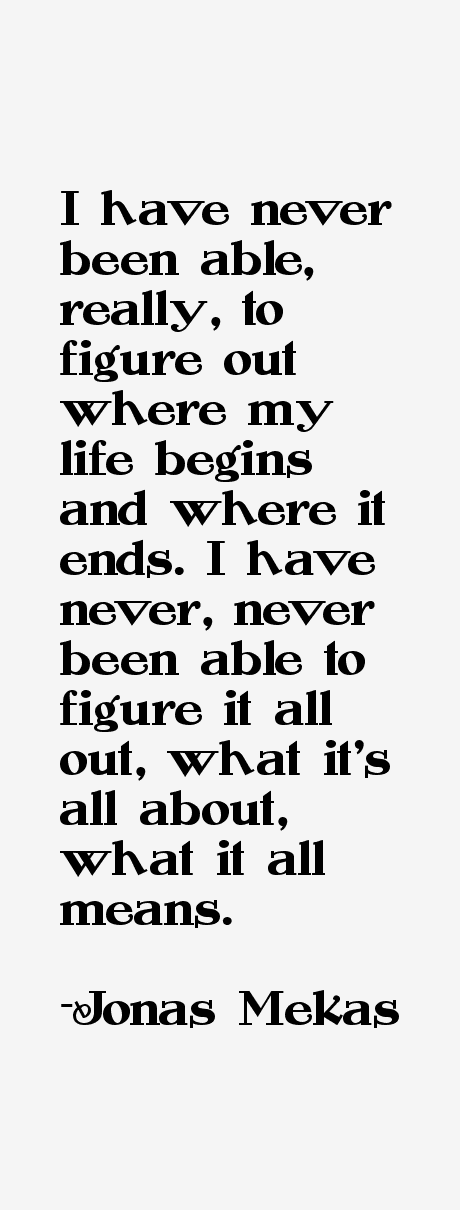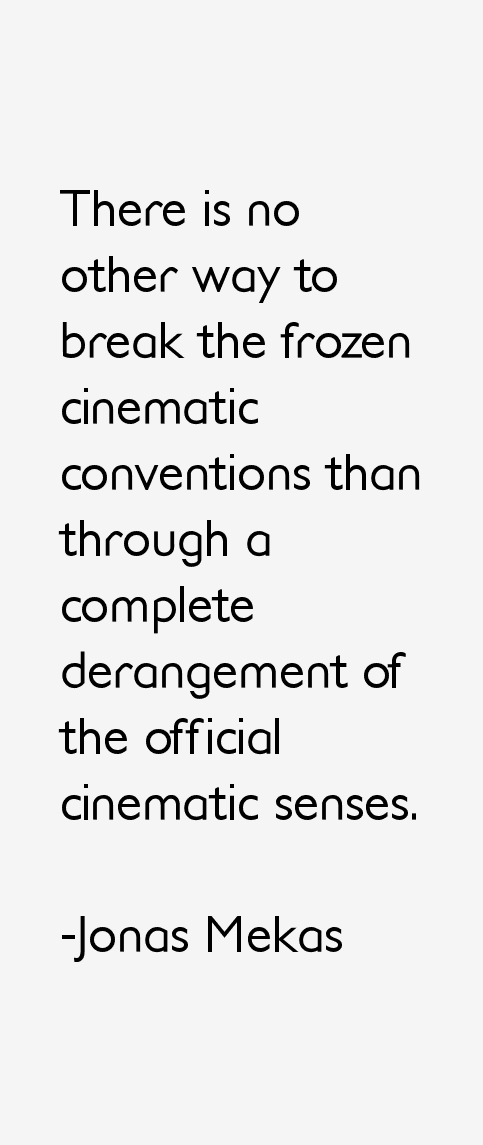Jonas Mekas Quotes & Sayings (Page 2)
Jonas Mekas quotes and sayings page 2 (103 year old director). Here's quote # 11 through 20 out of the 27 we have for him.
“I'm not so much in the future as always in the present. The future always takes care of itself. What I do now with my video camera, it can only record what is happening now. I am celebrating reality and the essence of the moment. And that's the greatest challenge that I have.”
“As a film-maker and a poet, I feel it's my duty to be an eye and an antenna to what's happening around me. I always felt a solidarity with those who are desperate and confused and misused and are seeking a way out of it.”

“I have never been able, really, to figure out where my life begins and where it ends. I have never, never been able to figure it all out, what it's all about, what it all means.”
“I'm a filmmaker, but my working procedures are different. All my basic structuring is done during the filming. You know, how long I keep the shot, the exposure or the speed - slower or faster, etc. That's structuring. And then there is a second stage of structuring that comes later when I begin to put those pieces together.”
“In Lithuania, I am known as a poet, and they don't care about my cinema. In Europe, they don't know my poetry; in Europe, I am a filmmaker. But here, in the United States, I am only a maverick!”
“In narrative cinema, a certain terminology has already been established: 'film noir,' 'Western,' even 'Spaghetti Western.' When we say 'film noir' we know what we are talking about. But in non-narrative cinema, we are a little bit lost. So sometimes, the only way to make us understand what we are talking about is to use the term 'avant-garde.'”
“To me, cinema is cinema. Cinema is one big tree with many branches. The same as literature. In literature, you don't just say, 'Oh, I bought some literature.' No, you say, 'I bought a novel' by so-and-so, or a book of essays by so-and-so.”
“Yes, I got my first Bolex camera a few weeks after being dropped in New York by the United Nations Refugee Organization. That was on October 29th, 1949. With my brother Adolfas, we wanted to make a film about displaced persons, how one feels being uprooted from one's home.”
“It is important to know that what I do is not artistic. I am just a film-maker. I live how I live and I do what I do, which is recording moments of my life as I move ahead. And I do it because I am compelled to. Necessity, not artistry, is the true line you can follow in my life and work.”

“There is no other way to break the frozen cinematic conventions than through a complete derangement of the official cinematic senses.”
Jonas Mekas Quotes Rating
No Ratings Yet
Leave A Comment
























